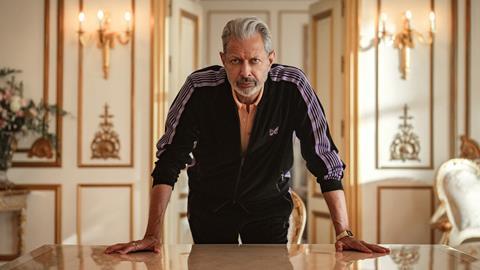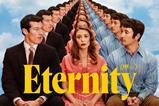The Netflix series Kaos takes Greek myths and puts them in a modern setting. But what does Zeus have to do with the God of the Bible? Giles Gough explores

Despite being released at the end of last month, Kaos is still riding high in Netflix’s most watched category. The series, which gives a modern spin on Greek mythology, features an all-star cast headed by Jeff Goldblum playing Zeus. He is joined by Janet McTeer as his wife Hera, David Thewlis as Hades, Billie Piper and a criminally under-used Eddie Izzard. But what exactly has made this binge-worthy TV? And what does it have to say to Christians?
Mythology remixed
Those with a passing understanding of Greek mythology might think they have some idea of where the story is going. But this is not a simple re-telling of one single myth, but a remix of half a dozen classic archetypes. Ariadne, rather than Theseus, faces the minotaur, while grief-stricken rockstar Orpheus descends to the underworld to rescue Eurydice, who might not actually want to be rescued. All the while, a Trumpian Zeus worries what a new wrinkle might mean for his immortality. Mount Olympus looks like Mar-a-Lago if they had a millennium to get it right.
The modern world find it easier to imagine a God who will smite them from on high than one who is willing to wash their feet
While a little slow to build, Kaos is compelling viewing. It has a lot of plot threads and, although some of the subject matter is brutal, most of the violence happens off screen. With its combination of petty tyrants and unassuming heroes in a fantasy setting, it might make you think of Game of Thrones in leisurewear. With Stephen Dillane’s Prometheus talking directly to the audience throughout, it has an almost Fleabag level of irreverence.
Zeus vs God
From a Christian perspective, what’s fascinating is how Zeus impacted how people saw God in the first century, and how those views have filtered down to us today. In Kaos we get to see how our society might look if shaped by the Greek pantheon rather than Christianity.
When I interviewed him on my podcast ‘God in Film’, author Nick Page drew a direct connection between Zeus and God: “Pictorially, our images of God are very Zeus-like, they draw very much on classical statuary. If you think of the classic image of God in the Sistine Chapel for example - an old but fairly muscley man, bearded, grey haired - that’s fundamentally Zeus. So, in other words, I think what’s happened with Christian history is we tend to see God too easily as a kind of larger Zeus.”
To some extent, this is understandable. The Jewish tradition of not depicting God, in line with their interpretation of the second commandment, meant that there was no convention established for portraying him. As the early Church moved away from its Jewish beginnings, Gentile Christian artists reached for some way to depict an all-powerful God who is king of all creation to a largely illiterate population. It seems they may well have fallen back on some pre-existing notions of what God looks like.
But the unintended consequence of this may be that some other associations with Zeus have been carried along into the public conscience. Much of the modern world may find it easier to imagine a God who will smite them from on high than one who is willing to wash their feet.
Radical reimagining
This is why the very concept of Jesus must have seemed so radical at the time. In a world shaped and moulded by Christianity, it’s hard to appreciate how much a God who loved everyone - especially the poor and the needy - was such a game-changer.
In many ways, the Greek gods are the inverse of Jesus; where they are cruel and capricious, he is loving and steadfast. Where Zeus holds eternal grudges for the smallest of slights, Jesus forgives the worst of sins at a moment’s notice.
Zeus impacted how people saw God in the first century, and those views have filtered down to us
Kaos is certainly not designed for a Christian audience, and those who look to be offended won’t have to look too hard. But more creative thinkers might just see a springboard for a meaningful conversation. Does this depiction of the afterlife look right to you? How does Jesus compare to these spiteful rulers?
These days, ending a Netflix show on a cliff-hanger is a risky business. A second series has yet to be announced, but if the apparent popularity of Kaos is anything to go by, we just might get to see where this story goes next.






































No comments yet